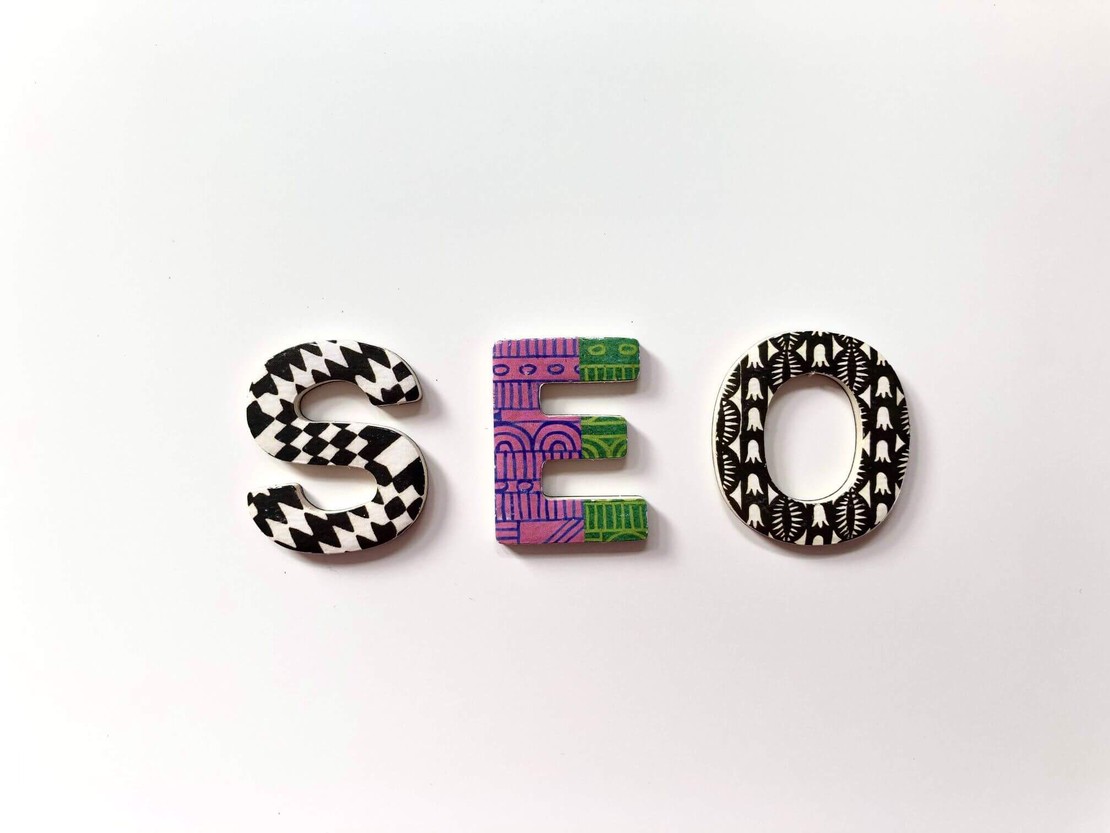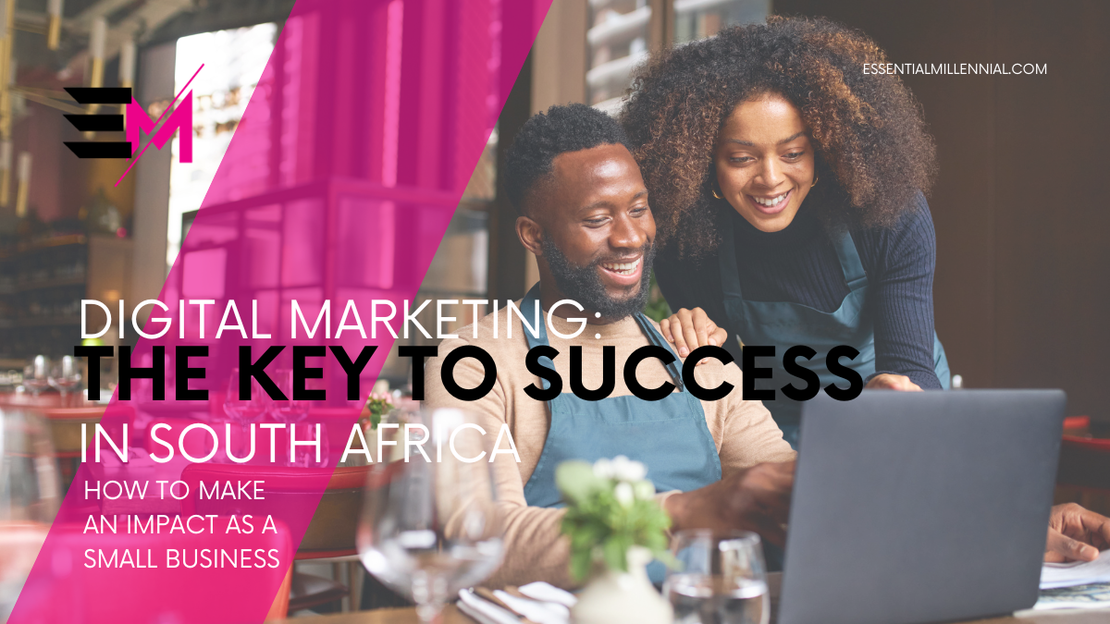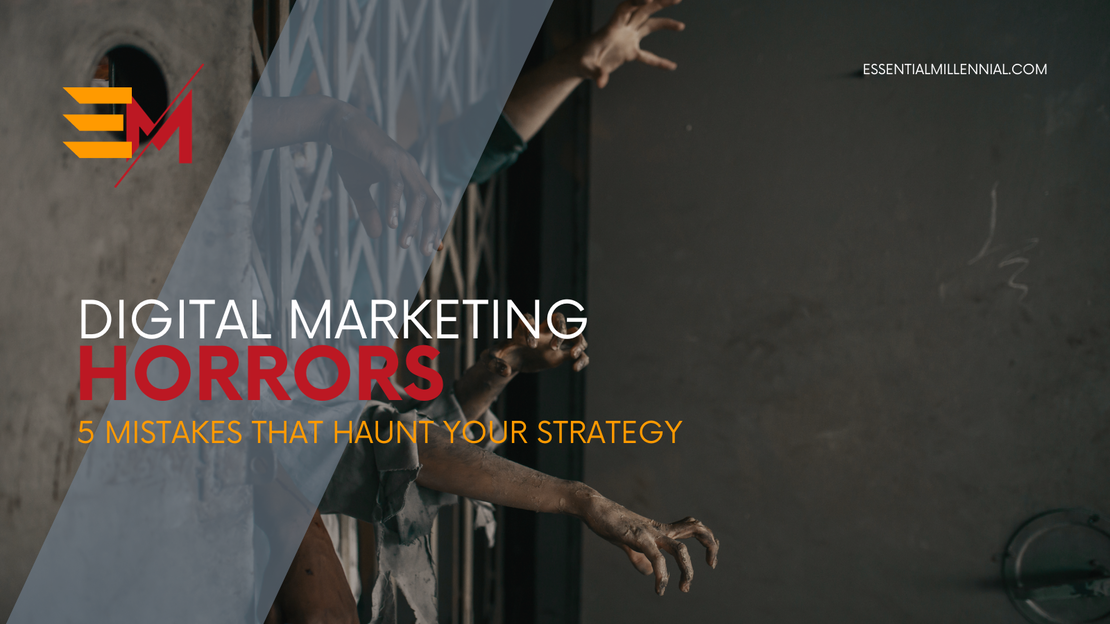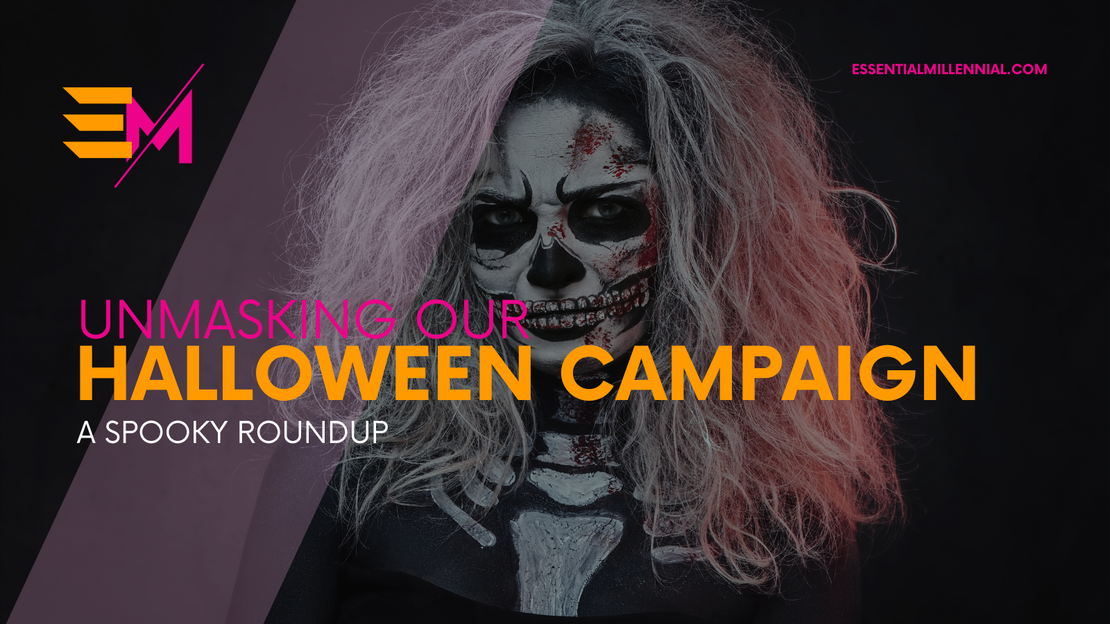
9 Digital Marketing & SEO Tips For Small Businesses
- Forrest Smith
- Digital marketing
- Wednesday, August 16, 2023
One of the big challenges that any small business encounters today is finding a way to attract customers online. There are plenty of businesses occupying real estate in the digital realm, be it in search engine results or through social media campaigns. But for your small business with a small budget, competing with bigger businesses with bigger budgets and potentially entire, dedicated marketing teams, is all-but impossible.
Here are our tips for beating the odds and crafting a digital marketing strategy that can boost your small business’ reach in the online marketplace:
To carry out a successful, integrated, digital marketing strategy, small businesses need to build fast, intuitive, responsive websites, build mailing lists and devise an email marketing plan, create compelling content that appeals to potential customers, and remain active on social media. Creating profiles on online business databases such as Google My Business or Yelp can also help customers find you.
Successful small businesses in every industry, whether run as e-commerce platforms or as traditional brick-and-mortar stores, will attest to the fact that digital marketing plays a fundamental role in the promotion of their brand and remaining competitive. But your business isn’t digital marketing. So there you have to learn the ins-and-outs of an entire industry or you have to spend money you have on specialised services. The good news, however, is that you’re reading this blog post and I can share some of the “hacks” I’ve learned from more than a decade in the digital marketing industry.
Build a fast website for your small business
Believe it or not, there are countless businesses out there that still don’t have their own websites. Some have been running for years operating just through a Facebook page and a WhatsApp number. For some small businesses that have a loyal customer base and that aren’t interested in expanding, this might work. But if you want more customers, a website is absolutely essential. It is the place that you want people to visit not only to buy your products and/or services, but to familiarise themselves with, and, eventually become loyal to your brand.
Your website is a place for your customers to visit to get more information about your company, learn about your products and/or services, find out where to contact you (and where to find you on social media), and other important information.
Your website also needs to be equipped with an online store. Most web content management systems like WordPress, Wix and Squarespace have integrated plugins for e-commerce and other dedicated e-commerce platforms like Shopify offer user-friendly templates and features.
What’s of particular importance is that you build a website that’s fast and responsive in this respect. Many users make their online purchases through mobile phones and tablets, meaning that it’s essential for your webpage to be just as user-friendly when scaled down for smaller screens. It also means that your webpage must load quickly. Too many widgets, images, videos and other page elements can increase your page loading time which can drive away customers. For example, if your page loading time increases from one to three seconds, bounce rates (customers leaving your webpage) increase by 32%; if it increases to 10 seconds, that bounce rate increases to 123%.
But if you really want to go the extra mile and maintain a website, keep it up to date and increase traffic, a blog is essential to truly capture the attention of your audience and convert them into customers. Your blog allows you to frequently update your website, giving your audience reason to keep coming back every day and build that oh-so-valuable brand loyalty.
For example, if you run a vintage clothing/thrift store and every 2-3 days you publish blog posts on topics like “Vintage Fashion Trends That Are Making a Comeback” and “Best thrift stores in Cape Town”, you give your customers a reason to keep coming back – even if it’s not to buy something every time they do. It gives them a reason to follow your social media accounts. And most importantly, it establishes you as an authoritative voice in the digital ecosystem.
Search Engine Optimisation (SEO)
The reason you’ve built your entire website in the first place is so that you can increase your brand’s visibility. To do so in the digital marketplace, you need your website, your products, or your content to appear at the top of the search results when a potential customer searches for a relevant keyword, creating the first contact between them and your brand.
By climbing the rankings in search engines (search engine optimisation), you can increase organic traffic to your website and build trust with new customers. The goal of SEO, therefore, is to make Google and other search engines recognise the relevance and value of your brand and products to serve users when they search specific keywords. In this sense, SEO is one of the most fundamental features of any small business’ digital marketing strategy.
SEO is an entire discipline of digital marketing but the most important thing for you to recognise at this stage is that SEO is all about competition. Firstly, domain authority (DA) helps you climb the rankings in key phrase searches. This means that your webpage has high volumes of traffic and has established itself as a trustworthy source of information for themes related to the keywords. Establishing a high domain authority requires years of marketing however and depends on a number of factors that are simply out of reach for small businesses with limited budgets. Therefore, to counteract the high levels of competition for keywords, a small business needs to be targeting more niche searches and to create content specifically tailored towards less competitive keywords.
Content marketing
Content marketing takes your SEO strategy to the next level and helps you to build a brand identity, curate a personality for your audiences and establish yourself as an authoritative, credible industry leader. Small businesses should make their blogs the focal point of the content marketing strategy. Everything from tips to DIY guides to listicles and even personal stories can help you brand establish itself as an authority in your industry. Once you’ve attracted an audience and they’re engaging with your content, they keep coming back to your website for more reliable, honest, and relevant information. In principle, content marketing is distinct from regular, impressions-based advertising in that, rather than have 10,000 people visit your website once, your strategy should be to have 500 people visit your website 20 times. For small business owners, there are many platforms like Fiverr and Upwork where you can hire freelance content creators to create curated content for your blog.
Social media marketing
Many people view social media, simply, as a way to amplify your brand, but the fact is that social media is also a discipline all on its own, with various, complicated mechanisms that need to be fulfilled – constantly. For the most part, your content marketing can guide your social media marketing and you can use your accounts to send users to your website’s blog. This keeps you active and relevant, without simply throwing adverts in your followers’ faces every time you show up in their feeds. Product marketing is not necessarily a no-no, but it should be infrequent.
Rather, you want to build a digital personality for your brand. Your loyal customers already know what products and services you have to offer and don’t want to see a constant wave of regurgitated content on your product’s features. You should be sharing relevant, interesting and useful information. Think of yourself as your customer’s ‘friend’. Your friends aren’t logging onto Facebook or Instagram to tell you about their vital information, like their height, education, or to tell you why you should be their friend.
They simply keep you updated about interesting developments in their lives or share something interesting they’ve come across on the internet – they aren’t there to sell themselves, and neither are you. You’re there to personify your brand, tell a story, share interesting information and keep your followers up to date. And if they take an interest in your journey after it’s already begun, you should be able to funnel them back to your website with calls to action. But your social media platforms are storytelling tools and must be treated as such.
And this also means building a relationship with your customers like you would your friends. Responding to comments and messages or queries is a great way to ensure that your customer feels heard and like you’re responsive to their needs. For small businesses, automated software can help you fulfil this function without hiring a dedicated team.
Email marketing
While technologically, email is a dinosaur in terms of modern forms of communication and has existed for half a century. However, emails form the bedrock of every internet user’s experience. It’s the repository that gives them access to everything they do online.
It should, therefore, come as no surprise that email marketing remains one of the most successful marketing channels for businesses, given its prominence and ubiquity in our digital lives. And, by creating informative, engaging, informative content that is distributed through planned strategies involving action-based, and time-based triggers, you can craft a relationship with your customers by remaining in close, consistent contact.
For small businesses, email marketing is the easiest and fastest way to entrench your relationship with your customers, because email marketing is a strategy that is entirely automated. With tools like Mailchimp, you can plan flows to customers, based on their interactions that will automatically nurture their journey towards brand recognition and brand loyalty.
Not only this, but email marketing also allows you to understand your audience better by gathering data and analytics that can determine how many people opened the mail, clicked on the links, read articles, bought products, etc.
Pay-per-click (PPC) advertising
There are plenty of ways to simply spend money on digital marketing and let the algorithms just do everything for you. Pay-per-click (PPC) advertising is one of the main methods used in digital marketing strategies. You can promote your brand through targeted ads sent directly to users searching for relevant keywords or browsing on specific websites. You can target users through search engines with Google Ads, or you could target very specific demographics with more robust social media platforms like Facebook Ads and LinkedIn Ads.
But, while PPC is an effective way to drive immediate traffic, generate leads and increase conversions, it requires compelling ad copy and it needs to be closely monitored, with budgets being adjusted to maximise your ROI.
With both social media and search engine PPC advertising, you can boost your online presence very effectively and using smart, effective strategies allows you to do so without spending a fortune.
Multimedia marketing
Presenting your marketing content through different storytelling techniques is the difference between a good campaign and a great campaign. Blog posts should be just one medium used for your content marketing strategy. Video, graphics, audio, and even emerging technologies like VR/AR can and should form part of your brand’s storytelling/digital marketing techniques.
Videos provide a dynamic, engaging way to connect with your audiences and potential customers. They can also be used to showcase product features and present various aspects of your brand and other content that your audience would find valuable. Presenting your blog content on social media with platform-optimised designs can also improve audience engagement while podcasts provide an avenue to explore the topics of the day at length with industry experts.
And thanks to various video and design software that’s intuitive, affordable, such as Canva, Animoto, and even AI-powered editing software like Adobe Premier Pro and Final Cut Pro, it’s possible for small business owners with little or no experience to create compelling, attention-grabbing multimedia content in minutes.
Establishing interoperability in the content cycle, running from your website to your various social media platforms to your paid ads to your email marketing is fundamental to reaching the biggest audience possible for each piece of content you publish.
Local searches (Google Maps/Yelp)
One great channel for your brand, if you have a physical location is to use user-generated content from platforms like Google My Business (for Google Maps), Yelp for Business and other local search directories. Claim your business on Google, fill in your business’ contact details, website, operating hours and other vital information. But your focus here should not be on your own profile. Rather it should be on user-generated content. The beauty here is that you don’t actually do the work yourself; your customers do. What you need to do is notice your customers to post ratings, opinions and photos. On Google, if the photo is posted on Maps, it’s included in your businesses’ profile. If your business is tagged on their Instagram posts, it is linked to your profile. A positive review from a customer is significantly more valuable than any ad you put out there. It’s a testimonial to the quality of your products and services.
And, as your profile gathers more and more reviews and user generated content, it builds a bigger online presence and you can begin to compete with other local businesses for customers searching for specific keywords.
Small businesses can offer their customers a freebie in exchange for a review on Yelp or Google Maps. The increase in traffic will repay the cost of free goods or services several times over.
Influencer marketing
The final channel for digital marketing that you can use is influencer marketing. By partnering with people who have a large online following and far-reaching influence in your industry or niche, you can collaborate on sponsored posts, guest blogs/appearances, product reviews and other marketing efforts. If your target markets falls within an influencer’s audience, your brand’s association with their content can kickstart the process of building brand loyalty.
Identifying relevant influencers whose audiences overlap with your target market however is tricky and they can also be difficult to reach. Working with an influencer to create resonating content that naturally integrates your brand can be one of the most effective digital marketing strategies if you get really creative.
Conclusion
Creating and running an effective digital marketing strategy is not easy. And small business owners may have an especially hard time with amplifying exposure to their products and services due to budget and time limitations, among other challenges. But, by following our digital marketing tips for small businesses, you can grow your business and reach new customers from those across the street to those on the other side of the world.
But digital marketing is a time consuming exercise that requires time and money. So, if you’d liketo focus on what you do best and lave your digital marketing in the safe capable hands of the Essential Millennial team, find out more about the services we offer HERE and get in touch with us HERE.


